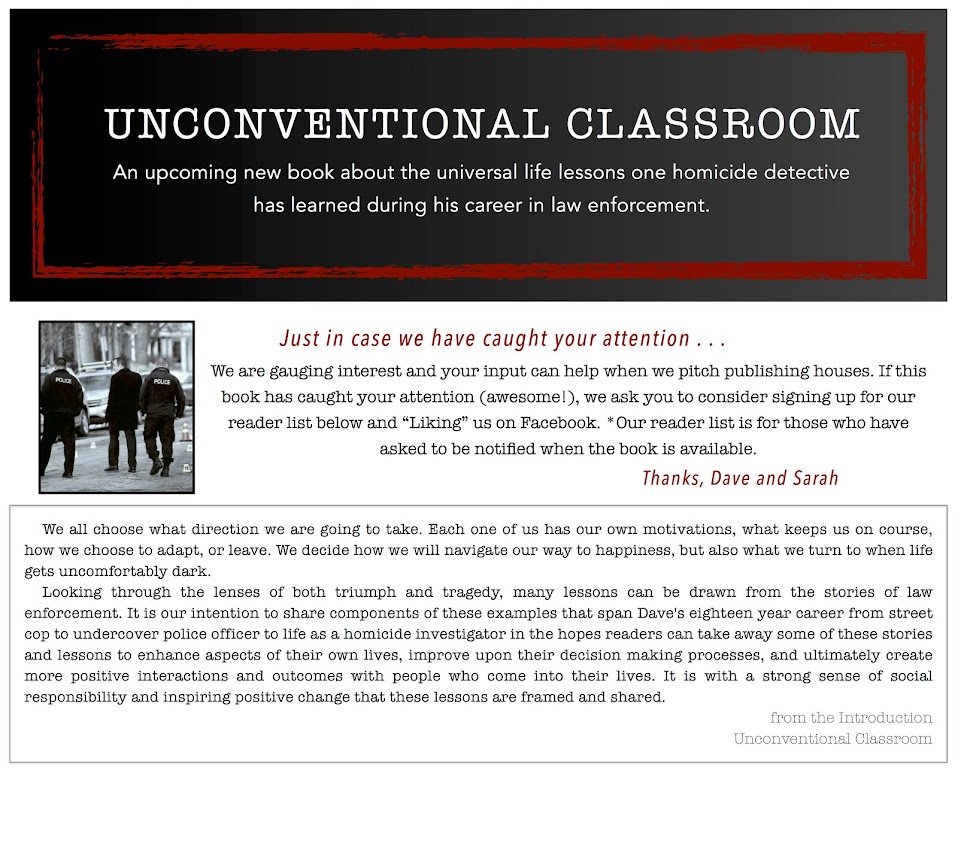Baz Luhrmann said it best in his song Everybody is Free to Wear Sunscreen: "Don't worry about the future. Or worry, but know that worrying is as affective as trying to solve an algebra equation by chewing bubble gum. The real troubles in your life are apt to be things that never crossed your worried mind, the kind that blindsides you at 4 p.m. on some idle Tuesday.”
 |
| Photo credit D. Sweet |
We all have bad days, I of course have them too, and that is when I remind myself how fortunate I am. The reality is I work in a career that many would find interesting. The fact is there are more professional hockey players that live in this town then homicide detectives and the stats say only one in every 85,000 kids playing hockey will ever get an opportunity to play one game in the pros. I live in a city of more than a million people, work in an organization of more then two thousand, and there are only fifteen of us city wide who have the opportunity to work in a career many people have only dreamed of as kids as they read the Hardy Boys or Nancy Drew. The odds that I would even get this chance seems near impossible, yet here I am. Experience has taught me that worrying over every detail of every day that has troubled me takes away from what I consider to be the very enviable situation that I find myself in. Perspective is a powerful antidote to worry.
Thanks for popping in, we appreciate you taking the time. We’ll have another post next week.
Until then,
Dave





